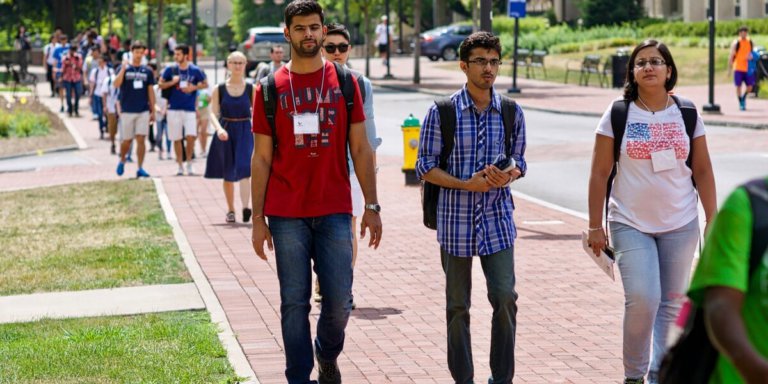
International students abroad can expect to receive a certain level of support from universities in their host countries: visa advice, academic counselling, orientation during the start of their programme and the like.
But could they be doing more to help international students adjust?
Ali Najaf, a recent graduate of the Beedie School of Business at Simon Fraser University, Canada, recently wrote on University Affairs that while he finds Canada to be an incredibly welcoming environment, there are still some areas where he feels universities can improve when it comes to catering to international students.
“My experiences as an international student have been incredible. I’ve formed close relationships with people from all over the world, learned about their cultures, and become a mentor for other international students.
“These are all things I had never done back home, and may never have had the chance to do in such a meaningful way until I arrived here. Nevertheless, there are still various issues and challenges faced by international students.”
So what are these issues and how can international student offices strive to help international students overcome them?
Support for faculty members
Members of the #NYUSilver community are joining students, faculty & staff from across #NYU at a day-long talk & training on Deep #Diversity: Overcoming Us vs. Them pic.twitter.com/rde8o0B4pV
— NYU Silver (@NYUSilver) November 16, 2018
While international student advisors are trained and experienced enough to deal with students from all corners of the globe, Najaf notes that teachers could use the training, too.
“Universities can provide training to the staff who deal with international students and offer an optional course to faculty and staff to learn and raise awareness about other cultural norms, so they know how to provide support and make international students comfortable in conversation.”
Teachers could have a cultural bias and not even realise it, so training on diversity and inclusive practices could be more prevalent in universities.
Support for students before they arrive
International students joining UCL in Sept: sign up for our pre-arrival webinars https://t.co/hxQZzfMfy6 #newtoucl pic.twitter.com/hTeYD5wJvB
— UCL (@ucl) August 8, 2016
Universities organise orientation activities and generally help students on-arrival, but what about the months between their acceptance and actual arrival to the university?
Many international students feel anxiety and uncertainty before coming to a particular university, even more so because they have to adjust to a whole new country as well.
By providing some assistance to help them get acclimatised before they’ve even left their home countries, staff can put international students at ease and reduce their anxiety.
Suggestions made by Najaf include implementing a “buddy system”, whereby universities can match a current international student with one from the same country, if possible.
By doing so, the new student can ask questions about the lifestyle, accommodation, things needed, and so on, as well as how to adapt to the new country, from a student perspective.
Najaf also suggested a “pre-arrival course” – already implemented in some universities – which includes information such as what documents to bring to the airport, finding accommodation, preparing finances, and resources for students to help them prepare before arrival.
Support for social connections
Lund University is one of the world’s top 100 universities and the most popular university in Sweden for international students. In addition to academic and research excellence, LU is famous for its unique student life with loads of social activities.https://t.co/ZnFYdcuP4L pic.twitter.com/788mKIdv9y
— Sweden in KSA 🇸🇪🇸🇦 (@SwedeninKSA) April 2, 2018
It can be hard for students to make friends, especially when there’s certain cultural boundaries. Oftentimes, international students become depressed or feel isolated due to their inability to force close connections with their peers.
Since having social connections is an important aspect of student well-being, Najaf suggests that universities can offer more opportunities for students to meet one another and connect in an informal setting, such as organising “coffee chats” and field trips.
They can also partner students with a local mentor or buddy during the first few weeks of their first semester, so they have someone to help them adjust to their new surroundings and introduce them to the local culture.
Support after graduation
International students – do you want to live, work and stay in #NovaScotia post-graduation? Receive the essential tools, resources, support, & connections needed to launch a successful #career and fulfilling life in NS. Apply by September 18th!
Details: https://t.co/iJlUXD3L5O pic.twitter.com/SXarkFU4fE— EduNova News (@EduNova_News) September 7, 2018
Can universities do more for students after they’ve left the university? Najaf suggests that universities provide career support three years post-graduation, especially for those who remain in Canada to work.
“Once a student graduates, the support should not end there; rather, universities could offer support to students up to three years post-graduation, so students can feel supported and make their transitions to work go more smoothly.”
Liked this? Then you’ll love…
How to make the most out of an Open Day visit
Why is it so difficult for international students to work in their host countries?







